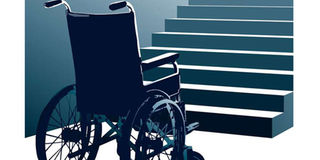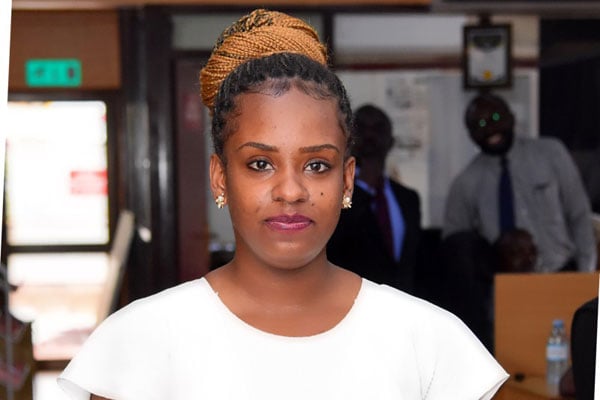Prime
Construct courtrooms easily accessible by PWDs, judge orders govt

Despite the enactment of laws advocating for the construction of public buildings that are PWD complaint, many are still non-complaint. NET PHOTO
What you need to know:
- The ruling of the court followed a successful application filed by a lawyer who has a physical disability.
High Court in Uganda has ruled and ordered the government to be mindful while constructing or renting courtrooms to include accessibility features like ramps to enable people with physical disabilities access them as they seek justice.
The ruling of the court followed a successful application filed by a lawyer who has a physical disability.
In his application, Mr Emmanuel Candia of Candia Advocates and Legal Consultants who moves about using a wheelchair stated that on May 15, 2018, he went to Mukono High Court to appear as counsel in three civil suits.
He says that he found the court had shifted to a two-storied building which had no ramps, lifts, or even convenient parking for PWDs.
"In order to be effectively served, the court clerk had to move and attend to me at the foot of the downstairs as it would be dangerous to lift me through the narrow staircase," Mr Candia contended.
He further stated that most of the courts in Mbarara, Mbale, Kampala, Supreme Court, Gulu, Arua and Family Court in Makindye where he has gone to represent clients don't have the facilities for PWDS to use to ease their movement.
He describes this as a deliberate omission that he argues has subjected him to embarrassing moments like having his clients lift him into the courtrooms.
He cited Gulu High Court where he said while being lifted to the courtroom on the second floor, his wheelchair broke and that he had to buy a new one.
Further, he said he has on a number of occasions lost clients because he sometimes instructs his colleagues to appear on his behalf in the court but some clients are not okay with such arrangements, and end up withdrawing instructions from him.
In his January 18th ruling, Justice Phillip Odoki of the Civil Division of the High Court agreed with lawyer Candia that his rights as a person with a physical disability has been violated as such he can't effectively practice his profession as an advocate to represent litigants as and when he wishes.
Section 20 of the Persons with Disabilities Act, 2006, places a duty on any person who constructs a building to which the public is invited to ensure that persons with disabilities have access.
"In my view, the applicant (lawyer Candia) has proved that the failure by the respondent (Attorney General) to put in place measures to make court premises accessible to persons with disability is discriminatory." ruled Justice Odoki.
To that effect, the judge ordered the Attorney General take steps for progressive realisation of the rights of persons with disabilities in as far as access to justice is concerned.
The Attorney General has also been ordered to report to court on the progress of the compliance within a period of three years.
No orders of costs were issued since the matter was a public interest one.
[email protected]





